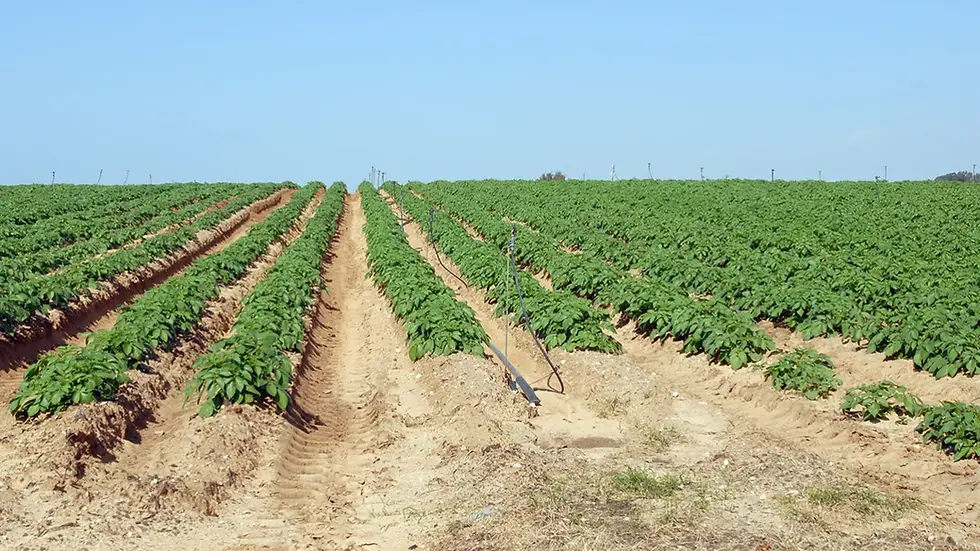In Our Time of Exile, We are Not Alone
- Rabbi Amy Eilberg
- Jul 31, 2020
- 4 min read

Tisha B’Av came early this year. I don’t mean that the Ninth of Av fell at the end of July rather than in August, as it frequently does. I mean that we have been mourning and contemplating collective losses since early March, when the pandemic arrived.
Just after the shutdown, I began teaching online classes on Jewish wisdom for the time of the pandemic. A participant in one of the classes made the stunning observation that he felt that we were already in Elul, the month of contemplation and prayer preceding the High Holidays.
How was the spring of 2020 like Elul? Let me count the ways. During the High Holidays, many of the prayers refer to the blessing of life. Sitting in sanctuaries and at dinner tables, we are keenly aware of who is missing this year, and whom we might lose in the year to come. The prayers make it explicit: Who will live and who will die in the year to come? Since the coming of the pandemic, death has been in the air, as we have curtailed countless normal behaviors in order to minimize our risks, and we have ached with worry about loved ones and community members more vulnerable than ourselves.
During the High Holidays, we take much time in private reflection, asking ourselves in what ways our lives have gone off course, which relationships need repair, and which values we have neglected in the year gone by. In the fearful strangeness of pandemic-time, we have been alone with our own thoughts far more than usual. Stuck in a global pause from ordinary busyness, we have had the time to ask ourselves what is most important in our lives, and whether our calendars and our activities match those professed values.
During the High Holidays, the prayerbook exhorts us to cultivate trust. If not in a traditional image of God as Father and King, the season raises the existential questions about what we believe in, where we put our trust, and what helps us to deal with the daily fears and vulnerabilities of being human. Where have we turned for comfort and assurance when an invisible virus has threatened everything we cherish?
During the holiday season, we tend to be especially grateful for the people we love and the communities in which we are embedded. With heightened awareness of the vulnerability and finitude of our lives, we are moved to treasure those we love, and to exchange especially heartfelt words of gratitude and appreciation. Especially in the early weeks of the pandemic, I sensed that people in my neighborhood and community reached out to one another with open-heartedness, exchanging warm wishes and greetings, radiant even behind our masks.
This week we came through our most intense day of national mourning, Tisha B’av, when we grieved the loss of the national center represented by the ancient Temple and wept over the beginning of our people’s longest exile.
But now we receive the message of comfort in this week’s haftarah: “Comfort, oh comfort, My people, says your God” (Isaiah 40:1). And we turn our attention toward the holidays to come.
But our time of exile has not yet passed. Most of us are still exiled from our ordinary workplaces and routines. Many of us have gone many months without being able to touch the people we love most dearly. We are exiled in an unfamiliar and unpredictable landscape of uncertainty, questions and fears.
Where are we to find comfort in these strange times?
We must turn to one another, of course. And we may turn to the rich wisdom of our tradition. In the midst of this week’s spectacular parashah, we find the Shema (Deuteronomy 6:4), which becomes one of Judaism’s most central and beloved prayers. Among the countless commentaries inspired by this verse is one of my favorite Hasidic interpretations.
The Hasidic masters say that the Shema means something very different than the usual understanding, that there is just one God, rather than two, or three or multiple gods. Rather, the meaning of “one” in the Shema is that everything that exists contains the Divine and is a part of the Divine. Thus, every person and phenomenon we will ever witness, and every thought and feeling we will ever experience, are a part of God, and therefore part of the great Oneness.
In ordinary times, it can be exceedingly difficult to perceive the oneness of all things and of all people. But in this time, when the entire planet is endangered by a microscopic virus, and a great movement for justice stirs in the heart of society, it is far easier to see that all is one.
When we can relate to this truth with our hearts, there is great comfort to be found.
We are not alone, not separate from and embattled with others. We are all part of the great oneness that is eternal. The truth of “God is One” is that we are part of a reality that will continue through time, no matter the challenges of the moment. May we all take comfort from this powerful message.
This column first appeared in the JWeekly, for Parashat Va'Etchanan.




Comments